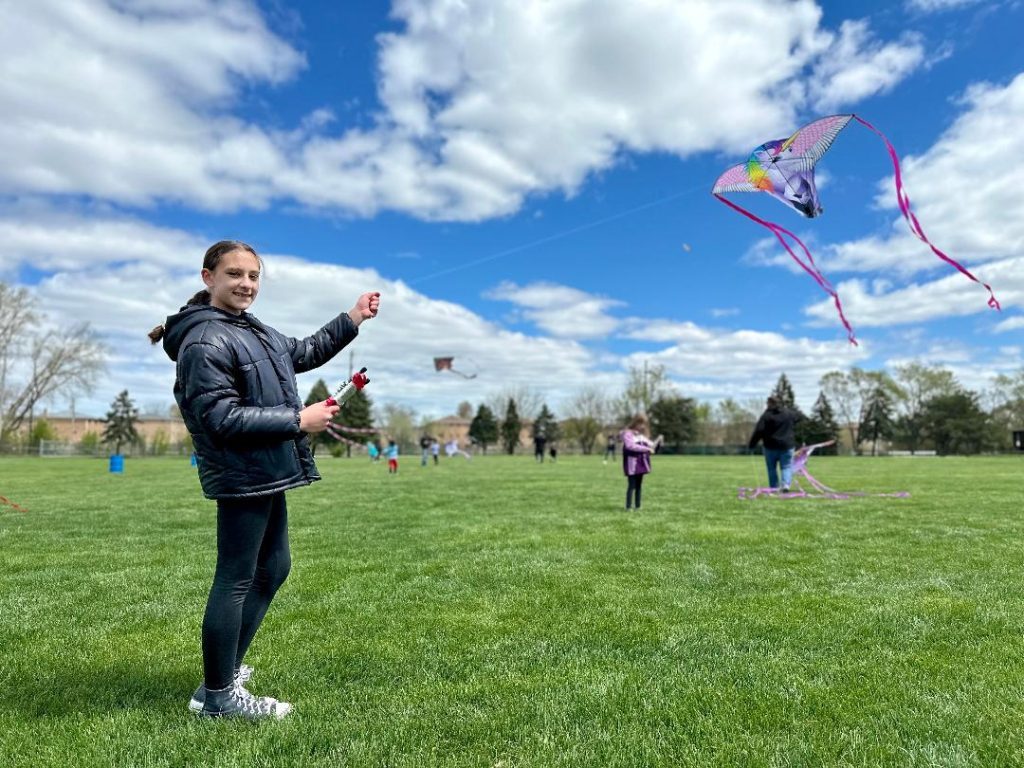
CAPITOL RECAP: New legislative maps passed on little notice; budget and ethics reforms approved, but college sports gambling bill on hold
By Capitol News Illinois
SPRINGFIELD – Illinois lawmakers passed measures Friday, May 28, to redraw state legislative and judicial district lines, less than 24 hours after the bills implementing the maps were introduced.
The latest versions of the legislative maps were released about 6:30 p.m. Thursday. The actual legislation to implement them was released in the early hours of Friday morning, according to lawmakers. Those bills were then heard in the House and Senate Redistricting committees during 9:30 a.m. hearings that were announced with about one hour’s notice.
Those revised House and Senate maps are similar to a draft set of maps that were released late last week and were the subject of joint committee hearings Tuesday and Wednesday. During the Tuesday hearing, the maps drew wide criticism from racial, ethnic and religious communities, particularly in the Chicago area, who complained that they broke up communities of interest and diluted minority voting power.
In a press release Friday night, Democrats said they took those comments into consideration, along with concerns of some Republicans.
Those changes included keeping more of the Chicago-area Orthodox Jewish community in a single district and keeping the North Lawndale neighborhood, a predominantly Black community, in one district.
The revised maps also reconfigure some Republican districts to reduce the number of districts that would have multiple GOP incumbents.
But those changes did not appear to satisfy many of the concerns that were raised about the earlier proposal, including one that called for a district made up largely of Middle Eastern and Arab American residents.
“I think our question now is, what else can we do?” Dilara Sayeed, of the Illinois Muslim Civic Coalition, asked during Friday’s House committee hearing. “What else can we do to ensure that our voices have not just been audio heard, but our voices have been respected and listened to?”
Republicans also were harshly critical of how the latest redistricting proposal was released and the short notice members of the public had to offer public comment at the hearings.
Sen. Sue Rezin, R-Morris, said the process by which the proposed maps were developed demonstrated the need for handing over the redistricting process to an independent commission.
The bill passed the Senate on a party-line vote of 41-18. A few hours later it came up in the House where the debate became even more partisan and acrimonious before it passed 71-45 on partisan lines just before 10 p.m.
* * *
COURT MAPS: The House passed Supreme Court remap legislation by 72-45 vote Friday, May 28, before passing the Senate 41-18 shortly after that, leading Republicans to call for a veto from Democratic Gov. JB Pritzker.
Legislative Republicans denounced Democrats for dropping the latest version of the judicial map late Thursday night and scheduling new redistricting committee hearings an hour before those committees were held at 9:30 a.m. Friday. The second map is nearly identical to the first judicial map draft released on Tuesday.
Democrats maintain that Illinois Supreme Court redistricting is needed because those districts have remained unchanged since the early 1960s.
They claim that major population changes in the five judicial districts justify a new Illinois Supreme Court map, in order to comply with the state constitution’s requirement that the four districts outside of Cook County have “substantially equal population.”
Rep. Curtis Tarver, D-Chicago, said he did not draw the maps, did not know who drew the maps, and did not know how the lines were drawn.
Republicans said they believe the new map is motivated primarily by the election loss of Democratic Justice Thomas Kilbride, who was not retained by voters in the November 2020 election.
Kilbride’s failure to earn the 60 percent of the vote needed to gain retention in the 3rd District is the first time in Illinois Supreme Court history that a sitting justice lost a retention election.
During floor debate on the map Friday, Rep. Deanne Mazzochi, an Elmhurst Republican, described the Democrats’ new judicial map as “the Democratic Party’s efforts to manipulate the Illinois Supreme Court, as they’ve done in every other branch of government” in response to Kilbride’s loss.
Currently, the court has a 4-3 Democratic majority. After Kilbride lost his retention election, the justices appointed Democrat Robert Carter to fill his seat.
The three Republican justices hail from the 2nd, 4th and 5th districts.
The new map redraws the 2nd, 3rd, 4th and 5th districts, which each have one elected justice. Three justices are elected from the 1st District, which spans Cook County.
* * *
BUDGET PASSED: Illinois lawmakers worked into the early hours of Tuesday morning, June 1, to pass a $42.3 billion state budget plan for the upcoming fiscal year that Democrats say would fully fund K-12 education and the state’s pension obligations while also paying down a sizeable portion of the state’s debt.
Lawmakers had been working on the budget since Gov. JB Pritzker delivered his proposal in February, and it passed on mostly partisan lines.
The job became easier with better-than-expected tax collections this year as well as passage of the federal American Rescue Plan Act, or ARPA, which will provide about $8.1 billion that the state can spend over the next four fiscal years.
Lawmakers said they plan to use the money for one-time projects such as affordable housing development, public health improvements, violence prevention programs and infrastructure projects.
Republicans, however, complained that the infrastructure spending was entirely directed by Democrats.
Presenting the budget to a committee May 31, House Majority Leader Greg Harris, D-Chicago, contrasted the situation Illinois faces now with the dire conditions it faced one year ago at the height of the COVID-19 pandemic.
“Here we sit today. We are back in our state Capitol,” he said. “We have vaccines. The world is beginning to open back up. We are seeing a bright, sunny day outside and there’s a lot to talk about that we have accomplished in the last year as a state that has put the state of Illinois in a far more stable place financially and a responsible place fiscally.”
Highlights of the proposed budget include increasing funding for the evidence-based funding plan for K-12 public schools by $350 million, bringing the total to $9.2 billion.
It also calls for spending about $7.5 billion in state general revenues on Medicaid, plus another $7.4 billion for other human services; $1.9 billion for higher education; another $1.9 billion for public safety; and $1.4 billion for general services.
In addition to those regular items, Harris said, the plan calls for spending about $2.5 billion of the ARPA money Illinois expects to receive. Of that, $1.5 billion would go for things like economic recovery programs to help businesses hardest hit by the pandemic, public health, affordable housing and violence prevention programs like after-school activities, and summer youth employment.
* * *
ETHICS REFORM: Shortly after 1 a.m. Tuesday, June 1, the Illinois Senate passed a bill aiming to improve ethics standards for elected officials after it was filed just hours earlier.
An amendment to Senate Bill 539, introduced by Sen. Ann Gillespie, D-Arlington Heights, passed with bipartisan approval despite House Republicans’ concerns that it was watered down.
“This legislation takes the first steps in addressing some of the most egregious scandals in our state’s history,” Gillespie said in a news conference Monday night, May 31. “While it won’t end corruption overnight, it closes many of the loopholes that have allowed bad actors to game the system for decades.”
The measure passed the House 113-5 Monday and the Senate unanimously early Tuesday morning. The bill will need only a signature from the governor to become law.
The bill creates a uniform requirement for statements of economic interests, requiring all candidates to disclose all personal assets and debts totaling over $10,000, all sources of income over $7,500 per year, as well as any personal relationships with individuals who serve in government or work as lobbyists.
Each interest statement would also be required to be reviewed by a state ethics officer, and candidates would also be required to disclose all campaign donations over $500.
The bill further expands limitations on fundraising efforts, preventing lawmakers from holding campaign fundraisers across the state on any day the General Assembly is in session, or on a day immediately preceding session.
The bill also prevents former lawmakers and officers of the executive branch from taking a lobbying job within six months of leaving their public position in what is typically referred to as a “revolving door.”
* * *
CLEAN ENERGY: The Illinois Senate adjourned just after 7 p.m. Tuesday, June 1, bringing to a close a legislative session that went hours beyond the May 31 “deadline.” But the on-again, off-again energy overhaul package ended up not being addressed Tuesday by the Senate. In the House, which adjourned early Tuesday morning, Speaker Emanuel “Chris” Welch said he’d prefer lawmakers return sooner rather than later to vote on energy reforms.
A possible deal on a sweeping energy proposal would keep the state’s fleet of nuclear power plants online while providing incentives for development of more wind and solar generation.
Talks on an energy package were continuing behind closed doors even as lawmakers were working into the wee hours of the morning Tuesday to push through the budget package. After it passed, the House adjourned “until the call of the chair,” meaning it could be called back into session at any time, while the Senate scheduled another day of session for Tuesday.
“The Senate remained in session with the hope of voting on an agreement today (Tuesday),” Senate President Don Harmon, D-Oak Park, said. “We stand ready to return to the Capitol when the governor’s plan is ready for action.”
Pritzker campaigned in 2018 on a pledge to shift Illinois’ electric energy industry more toward renewable and zero-emission sources, and he has set a goal of achieving a 100 percent non-carbon power system by 2050.
Achieving that goal, however, relies on keeping the state’s nuclear power fleet online, and Exelon has threatened to close two or more nuclear plants that it says are unprofitable unless it receives subsidies to make them economically viable.
But many lawmakers have been skeptical of Exelon’s claims, in large part because of the company’s connection with ComEd. Last year, ComEd entered a deferred prosecution agreement with federal authorities in which the company admitted to engaging in a yearslong bribery scheme that involved awarding jobs and contracts to close associates of former Illinois House Speaker Michael Madigan in order to gain his support for legislation favorable to the company.
At issue in the talks over an energy package is the question of how much of a subsidy the nuclear plants need, how long the subsidies should last and how to phase out the state’s remaining coal- and gas-fired power plants while creating new energy-related jobs for the workers who would be displaced.
* * *
ELECTIONS CHANGES: Lawmakers passed an omnibus elections bill Monday, May 31, that would push back the date of the 2022 primary elections amid other major changes to the state’s election code.
The 156-page omnibus bill, an amendment to Senate Bill 825 filed by Rep. Maurice West, D-Rockford, would also strengthen the state’s cybersecurity surrounding elections and make Election Day a holiday among other provisions.
It will need only a signature from the governor to become law.
Under the legislation, in 2022, early voting for primary elections would start May 19 and Election Day would be moved to June 28. State primaries are typically held in March. The dates for nominating petitions for primaries would also change, with those seeking office being able to circulate petitions starting Jan. 13. Congressional and judicial candidates must have petitions filed by March 14.
The provision changing these dates is set to expire at the start of 2023.
The bill would also make the date of the general election, November 8, a state holiday in 2022. It will be considered a legal school holiday, and any schools closing due to the holiday would “be made available to an election authority as a polling place for 2022 General Election Day.” This provision would also expire at the start of 2023.
One provision would also create a permanent vote-by-mail list.
* * *
BETTING ON COLLEGE SPORTS: An omnibus gambling bill that would allow Illinois bettors to wager on in-state college sports teams on a two-year trial basis passed the House early Tuesday morning, June 1, hours after its introduction the day prior. The bill, however, was not taken up by the Senate before its adjournment later June 1. It could be taken up later this summer if the Senate reconvenes to address other matters, including clean energy legislation.
Under the bill, anybody wishing to make such a bet in Illinois, would need to do so in person at a sports book, rather than on an online application. A bet on an Illinois college team could only be a “Tier 1” wager, meaning it is “determined solely by the final score or final outcome” of a sporting event, and it must have been filed before the start of the game.
The sports betting provision would take effect immediately if the bill is passed by lawmakers and signed by the governor. The provision would run through July 1, 2023, and it would not allow wagering on an individual athlete’s performance.
Sponsored by Rep. Bob Rita, D-Blue Island, House Amendment 1 to Senate Bill 521, passed the House shortly before 1:30 a.m. by a 96-11 vote. Rita said the bill does not limit college betting to Division 1 sports, but rather allows it for all college athletics.
* * *
CRIMINAL JUSTICE REFORM: The General Assembly this week passed legislation addressing lingering concerns from law enforcement about a massive criminal justice reform omnibus passed earlier this year.
Introduced by Chicago Democratic Sen. Elgie Sims, an amendment to House Bill 3443 would act as trailer legislation for the SAFE-T Act, a major criminal justice reform backed by the Illinois Legislative Black Caucus that was signed into law by Gov. JB Pritzker in February. That measure mandated body cameras and changed use-of-force guidelines for law enforcement, created a new police certification system, expanded detainee rights and ends the use of cash bail in Illinois.
Unlike the SAFE-T Act , Sims’ new legislation has the support of the Illinois Association of Chiefs of Police and the Illinois State Police and amends some controversial portions of the act that were opposed by law enforcement.
In a statement posted to its website, the IACP approved of the amendment’s changes relaxing rules around body cameras, removing some use-of-force restriction language and extending deadlines for new training standards.
It passed the Senate 42-17, but in the House, Rep. Justin Slaughter, D-Chicago, who negotiated most of the major provisions in the SAFE-T Act alongside Sims, ran into opposition from fellow Chicago Democratic Rep. Curtis Tarver.
Tarver called the trailer legislation a “piss-poor bill,” and rejected the idea that it was a Black Caucus amendment because Slaughter did not present it to the entire Black Caucus before he and Sims introduced the legislation.
The legislation ultimately passed 79-36, with multiple Republicans voting in favor of the measure and Tarver voting as the sole dissenting Democrat. A brief parliamentary hold was put on the bill, but as of Wednesday, June 2, it had been lifted, clearing the way for it to head to the governor.
* * *
STALLED BILLS: In the final days of the legislative session, lawmakers passed bills to allow for college sports betting, to phase out isolation and seclusion practices at school, and to create more affordable housing units.
Despite the hectic rush to move important legislation by the May 31 deadline, some consequential bills did not come up for a final vote.
A bill to repeal the parental notification requirement for young girls seeking an abortion didn’t come up for a vote. Bills to license professional midwives and decriminalize small amounts of drugs passed in the House but not the Senate.
While these bills appeared to be stalled this spring session, they could still be taken up for a vote if lawmakers return to session later this summer to address energy legislation.
* * *
IMMIGRATION LEGISLATION: Illinois lawmakers passed bills advanced by the Legislative Latino Caucus that would close the state’s three immigrant detention centers and strengthen existing protections against local and federal law enforcement.
The Illinois Way Forward Act, or Senate Bill 667, requires that the existing agreements between local jails in McHenry, Pulaski and Kankakee counties and Immigration and Customs Enforcement must end by Jan. 1, 2022. The bill also prohibits any future agreements between ICE and local governments to “house or detain individuals for federal civil immigration violations.”
The bill would also strengthen the TRUST Act, or “Transparency and Responsibility Using State Tools,” which took effect in 2017.
The TRUST Act prohibits state and local law enforcement officials from detaining “any individual solely on the basis of any immigration detainer or nonjudicial immigration warrant.”
Under the TRUST Act, state and local police cannot arrest or detain individuals based on suspected or actual immigration status. It also prohibits police from holding or detaining people based on ICE arrest warrants or detainers.
But there are other types of cooperation that local police can engage in with federal immigration enforcement, such as cooperating in joint operations with ICE, said Fred Tsao, who is senior policy counsel at the Illinois Coalition for Immigrant and Refugee Rights, which lobbied for this bill.
SB 667 would also empower the state attorney general’s office to investigate violations of the TRUST Act and enforce compliance through local courts.
In addition to SB 667, the House and Senate extended Medicaid coverage to noncitizens between ages 55 and 64 in Senate Bill 2017. Current law provides Medicaid coverage for noncitizens who are 65 and older.
The legislature also passed House Bill 2790 to allow attorneys from the Cook County Public Defender’s Office to represent noncitizens in federal immigration court.
The bills have passed both chambers of the General Assembly and will be sent to Gov. JB Pritzker.
* * *
TRAILER FEES REDUCED: The Illinois House and Senate passed a bill that would lower small trailer license fees from $118 to $36, which lawmakers said on the House floor Sunday, May 30, could remedy an issue that has resulted in an uproar of complaints from their constituents.
In 2019, lawmakers raised the fee for licensing a small trailer in Illinois from $18 to $118 as part of Gov. JB Pritzker’s Rebuild Illinois capital infrastructure plan.
Senate Bill 58, sponsored by Rep. Marcus Evans, D-Chicago, lowers the annual fee to a compromise $36, along with removing a $10,000 cap on sales tax credits on vehicle trade-ins.
Lawmakers reached a unanimously approved compromise by raising the certificate title fee by $5, from $150 to $155, to replace the revenues lost from the lowered trailer fee. The certificate title fee is only paid when titles are transferred for registered vehicles.
SB 58 also restores the full credit trade-in rates that had been capped at $10,000.
* * *
DECEPTIVE INTERROGATION: The Illinois House unanimously passed a bipartisan juvenile justice reform Saturday, May 29, that outlaws the use of deceptive interrogation techniques on minors.
The measure, contained in amendments to Senate Bill 2122, makes confessions by minors in custody inadmissible if they were obtained by “a law enforcement officer or juvenile officer (that) knowingly engages in deception.”
The bill was introduced in the House by Chicago Democratic Rep. Justin Slaughter and was also sponsored by two Republican former prosecutors, Minority Leader Jim Durkin, of Western Springs, and Rep. Patrick Windhorst, of Metropolis.
Durkin praised Slaughter for negotiating with Republicans and law enforcement and securing the support of the Illinois Association of Chiefs of Police and the Illinois State’s Attorneys Association.
Durkin said he was initially skeptical of the legislation but was moved toward supporting it after speaking to legal experts from the Innocence Project. According to Durkin, what finally put him over the edge to sponsor the bill was learning about the case of Brendan Dassey while watching the Netflix series “Making a Murderer.”
Slaughter pointed to the case of Terrill Swift, one of the Englewood Four, who was released in 2012 after serving 15 years in prison after it was determined his confession as a 17-year-old minor was coerced by Chicago police officers.
That confession had led to his conviction despite no evidence tying him to the crime committed, and the city paid Swift nearly $7 million in a settlement following his release.
The measure passed the House in a 114-0 vote. The Senate concurred with the amendment Sunday, May 30, which means it can now head to the governor for a signature.
* * *
SENTENCING REFORM: The House also passed a sentencing reform bill Saturday, May 29, along partisan lines. Senate Bill 2129 allows the State’s Attorney of a county where a defendant was sentenced to file a motion to resentence that individual if their original sentence “no longer advances the interests of justice.”
The new sentence cannot be greater than the one originally handed down by the court and is meant as a rehabilitative measure.
The reform is meant as a way to address historically punitive sentences against crimes and circumstances that may be considered for more lenient punishment today with advances in understanding around socioeconomic contributors to violence and crime.
It passed the House in a partisan 61-48 vote and now will head to Gov. JB Pritzker for his signature after passing the Senate last month in a partisan 31-17 vote.
* * *
AFFORDABLE HOUSING: The General Assembly passed an omnibus bill Sunday, May 30, aimed at creating additional affordable housing units in the state.
House Bill 2621 aims to create monetary incentives including a COVID-19 Affordable Housing Grant program to provide funding to support affordable housing in areas “disproportionately impacted” by COVID-19.
The program would supplement affordable housing developments which qualify for federal tax credits. Funds for the program, which are subject to appropriation, will be made available through federal dollars from the American Rescue Plan Act with statutory language to be repealed in April 2025.
The bill also aims to extend the Illinois Affordable Housing Tax Credit, which offers incentives to developers which donate money or real estate to affordable housing developments.
The specific amount of funding to be made available under the programs is still being negotiated.
* * *
TELEHEALTH EXPANSION: The General Assembly also passed a bill Sunday, May 30, which would allow for the expansion of telehealth services and to be covered by a patient’s insurance.
House Bill 3308, if signed into law by the governor, would enact changes to state law pertaining to telehealth services, which were expanded through recurring executive orders issued by Gov. JB Pritzker during the COVID-19 pandemic.
Senate Republican leader Dan McConchie, of Hawthorne Woods, praised the bill on the Senate floor Sunday for addressing “a lack of accessibility” in telehealth services, adding the bill allows for more residents in all parts of the state to access healthcare services from anywhere.
Chief Senate sponsor Napoleon Harris, D-Harvey, said the bill will serve as “a starting point” for expanding the state’s telehealth infrastructure following the COVID-19 pandemic.
* * *
CONTRACEPTIVES FROM PHARMACISTS: House Bill 135 also passed the House on Sunday, May 30, after passing the Senate on Friday. Under the bill’s provisions, qualified pharmacists, starting Jan. 2022, will be able to prescribe and dispense a 12-month supply of hormonal birth control.
A qualified pharmacist prescribing hormonal contraception must require an individual fill out a screening form identical to what is required of a physician prescribing birth control. The bill would cover hormonal contraceptive methods such as pills, rings and patches.
HB 135 passed in a partisan 70-44 vote, with Republicans opposing the legislation due the lack of age limit or requirement of parental consent for minors receiving birth control through a pharmacist.
It can become law upon signature from the governor.
* * *
SECLUSION BAN: A bill to phase out the use of isolated timeouts and prone physical restraint in public schools will soon be sent to Gov. JB Pritzker.
The Illinois House on Sunday, May 30, voted unanimously to concur in changes the Senate made to House Bill 219, which include putting a virtual halt to the practices starting in the 2022-23 school year.
The bill was prompted by a 2019 investigative story by the Chicago Tribune and ProPublica that documented how extensively schools had been using the practice for decades.
Rep. Jonathan Carrol, D-Northbrook, the lead sponsor of the bill in the House, said he had worked the last 18 months to get the bill through the General Assembly. He had noted previously that he was a victim of seclusion and restraint practices when he was in school and that he still lives with the memory of those events.
* * *
MENTAL HEALTH: The House also advanced a measure Sunday, May 30, to create a mental health first responder system in coordination with an emergency phone system for mental and behavioral health medical emergencies that was created by federal law.
The Division of Mental Health of the state’s Department of Human Services is “preparing to provide mobile mental and behavioral health services to all Illinoisans as part of the federally mandated adoption of the 988 phone number,” according to the bill. The number is expected to go online by July 2022.
House Bill 2784, sponsored by Rep. Kelly Cassidy, D-Chicago, creates the Community Emergency Services and Support Act requiring 911 call center operators to coordinate with the mobile mental and behavioral health services to be established by the Division of Mental Health.
The Division of Mental Health would also establish regional advisory committees in each Emergency Medical Services region to advise on mental and behavioral health emergency response systems.
HB 2784 advanced out of the House unanimously, and only requires the governor’s signature to become law. If it is signed, call centers and emergency services would be required to comply with a series of state goals and prohibitions outlined in the law once DHS and the regional committees have protocols in place and no later than January 2023.
* * *
RECESS REQUIREMENT: Elementary school children in all public schools in Illinois would be entitled to at least 30 minutes of unstructured playtime each day under a bill that passed the state House on Saturday, May 29 and the Senate Sunday, May 30. It needs a signature from the governor to become law.
That’s only half the amount of playtime that the original bill would have required as it passed out of the Senate. The original bill also would have applied to students from kindergarten through eighth grade, but the bill was narrowed as a concession to opponents that included groups representing teachers, principals and administrators.
Even with those changes, Senate Bill 654, which some have dubbed the “right-to-play” bill, cleared the House by the smallest allowable vote total, 60-52.
The bill was sponsored by Sen. Robert Peters and Rep. Aaron Ortiz, both Chicago Democrats who recalled their own time in school without being allowed recess time.
Under the amended bill, all children from kindergarten through fifth grade would be entitled to at least 30 minutes of “supervised, unstructured, child-directed play” during any school day lasting five clock hours or longer. That time could be divided into two recess periods of 15 minutes each.
During days that last less than five clock hours, the time allotted for play would be at least one-tenth of the day.
* * *
COLLEGE ATHLETES PAY: College athletes in Illinois would be able to independently profit from their image or likeness under a bill passed by the General Assembly on Saturday, May 29.
Senate Bill 2338, sponsored by Chicago Democratic Rep. Kam Buckner, allows college athletes in Illinois to be paid for the use of their name, image and likeness, or voice while enrolled at a post-secondary education institution. It also gives college athletes the ability to obtain an agent or legal counsel. It would take effect July 1 or immediately upon the governor’s signature if it comes after that date.
Buckner said the measure was personal to him as a former football player at the University of Illinois at Urbana-Champaign. Buckner said he and UI athletic director Josh Whitman have partnered on passing this policy change.
The issue of allowing college athletes to be paid has been a topic of much debate in the sports world for decades as the NCAA has barred college athletes from profiting from brand endorsements on the basis of amateurism.
The bill does not allow for salary payment for the college players, but rather allows college athletes to monetize their likeness, such as participating in autograph signings at local businesses or appearing in video games.
The NCAA was preparing to revise the name and likeness policy in January of this year, but indefinitely delayed the vote after recommendations from the U.S. Justice Department to hold off on making a decision. A revised policy from the NCAA could come by the end of the year, and advocates for bills like the one passed Saturday have said such measures could force nationwide action.
In March, the U.S. Supreme Court heard arguments in a case challenging the NCAA’s ban as a violation of antitrust laws. A decision in that case is still pending.
* * *
SEX EDUCATION BILL: The Illinois House passed legislation on Friday, May 28, updating the state’s sex education curriculum in a partisan split.
The bill, which creates a new “personal health and safety” curriculum for grades K-5, and a “sexual health education” for grades 6-12, received resistance from Republican lawmakers and religious groups for its “culturally appropriate” guidelines, including education on gender identities, different types of families, sexual orientation, consent and a woman’s options during pregnancy.
The legislation, an amendment to Senate Bill 818, passed the Senate last week on a 37-18 vote along partisan lines. Floor debate was punctuated with contentious speeches, with Xenia Republican Sen. Darren Bailey referring to the bill as “perversion” multiple times while urging a “no” vote.
Under current law, parents and guardians may opt their student out of sex education classes with no penalty. That provision would remain in the new legislation.
While a previous version of the legislation set a mandatory deadline by which all schools would be required to teach sex ed, the most recent amendment allows each individual school district to determine whether it will teach the subject.
However, if a district decides to offer sexual health education, the curriculum must use all or part of the curriculum established by the bill.
The actual statewide curriculum based on the guidelines for sexual health education and personal health and safety would be developed by the Illinois State Board of Education by Aug. 1, 2022.
But many of the guidelines contained in the statute require that sex ed curricula be aligned with National Sex Education Standards, an initiative by non-government organizations to provide “guidance on essential minimum core content and skills needed for sex education that is age-appropriate.”
Republicans balked at aligning state education standards to out-of-state guidelines designed by individuals unaffiliated with government entities, some of whom are listed in the standards as representing Planned Parenthood.
The National Sex Education Standards are in their second edition, and ISBE would adjust the state’s curriculum under the law to be in alignment with new editions as they are released.
* * *
LEAD SERVICE LINES: The Illinois Senate passed a bill Friday, May 28, which would require water utilities to replace lead service lines.
House Bill 3739, known as the Lead Service Line Notification and Replacement Act, would require all water utilities to compile an inventory of all known lead water service lines and submit a plan for removal and replacement of the lines to the Illinois Environmental Protection Agency.
Although the installation of new lead service lines has been banned since the 1980s, Illinois has more than 636,000 lead service lines still in operation, according to data from the Metropolitan Planning Council.
That number accounts for more than one-eighth of all lead service lines still in use in the United States, according to the Illinois Environmental Council.
Under the bill, water utilities would be required to submit an initial plan for lead service line replacement by April 15, 2024, with a final plan due to IEPA by April 15, 2027.
The bill allows water utilities to apply for extensions to the deadlines, if needed. The bill would also establish a state-run grant program to assist in minimizing the costs of lead line replacement.
Bush said the long deadlines allow for communities to plan funding for the removal and replacement projects, which Republicans raised as a major concern to the legislation.
Bush responded the state is prepared to receive federal funding to assist in minimizing the cost of lead service line removal, which she said is estimated to cost near $5 billion.
She added a total of more than $45 billion in proposed funding for lead service line replacement is moving through Congress, and that the state would also explore using funding made available through the federal coronavirus relief packages.
* * *
MARIJUANA LICENSES: Legislation revamping the state’s system for awarding marijuana dispensary licenses passed the House on Tuesday, May 25. After the bill passed the Senate Friday, May 28, by a 50-3 vote, it will head to Gov. JB Pritzker for a signature,who said in a statement he looks forward to signing the bill “so that we can begin the next phase creating a cannabis industry that reflects the diversity of all of our people.”
Amendments to House Bill 1443, sponsored by Chicago Democratic Rep. La Shawn Ford, would create two new marijuana dispensary lotteries offering 55 licenses each while addressing lingering concerns regarding the original 75 licenses established in the 2019 law.
It passed the House in a 70-33 vote with bipartisan support, but also bipartisan opposition.
The 75 licenses initially set by the 2019 law were supposed to be granted by May 2020, but were sidelined by the outbreak of the COVID-19 pandemic and legal challenges.
Originally, the process as intended would award licenses in order of applicant scores with tiebreaker lotteries for applicants who received the same score. However, after just 21 of more than 900 applicants received a perfect score to become eligible for the lottery, a hold was placed on the lottery system.
Under Ford’s legislation, the first new batch of 55 licenses would be offered through a “Qualifying Applicant Lottery” which would only be open to applicants who scored 85 percent or higher on submissions for the first 75 licenses.
This would provide a chance at dispensary licenses to firms who did not receive a perfect score and were excluded from the initial 75-license lottery, and firms who did qualify for the initial tiebreaker lottery but have not hit the 10-license cap for applicants.
The second new batch of 55 licenses would be offered through a “Social Equity Justice Involved Lottery.” Those eligible must have scored 85 percent or higher on their submission, and must also qualify as a social equity applicant. That means 51 percent of the firm’s ownership must be someone who has lived in an area impacted by the war on drugs for 10 years, have been arrested or convicted of a marijuana crime eligible for expungement, or be a member of a family impacted by the war on drugs.
Another lottery of five licenses for medical cannabis dispensaries would also be open to applicants who were eligible for the social equity or qualifying lotteries.
* * *
PRETRIAL INTEREST BILL SIGNED: Gov. JB Pritzker signed legislation Friday, May 28, allowing for plaintiffs to collect pretrial interest on money awarded in some civil suits, after vetoing a previous version of the provision in March.
An amendment to Senate Bill 72, introduced by Rep. Jay Hoffman, D-Swansea, grants 6 percent pretrial interest on money awarded to plaintiffs in personal injury and wrongful death lawsuits in civil court.
Hospitals and health care providers are typical defendants in these cases.
Before the passage of the legislation, plaintiffs received only 9 percent interest post-judgment in Illinois. That would be interest accrued on the plaintiff’s monetary award from when the judgment is made to the time the monetary judgment is received.
Now, additional interest on monetary awards is retroactively applied from the time the lawsuit is filed to the time a judgment is made in favor of the plaintiff.
Both apply only to cases settled in court, encouraging defendants to settle with plaintiffs out of court.
There are 47 states, including Illinois, that now have some form of pretrial interest for court winnings. In his March veto message, Pritzker said he did not support the previous version of the bill because its rate of 9 percent interest was significantly higher than other states with similar laws.
Capitol News Illinois is a nonprofit, nonpartisan news service covering state government and distributed to more than 400 newspapers statewide. It is funded primarily by the Illinois Press Foundation and the Robert R. McCormick Foundation.
Local News
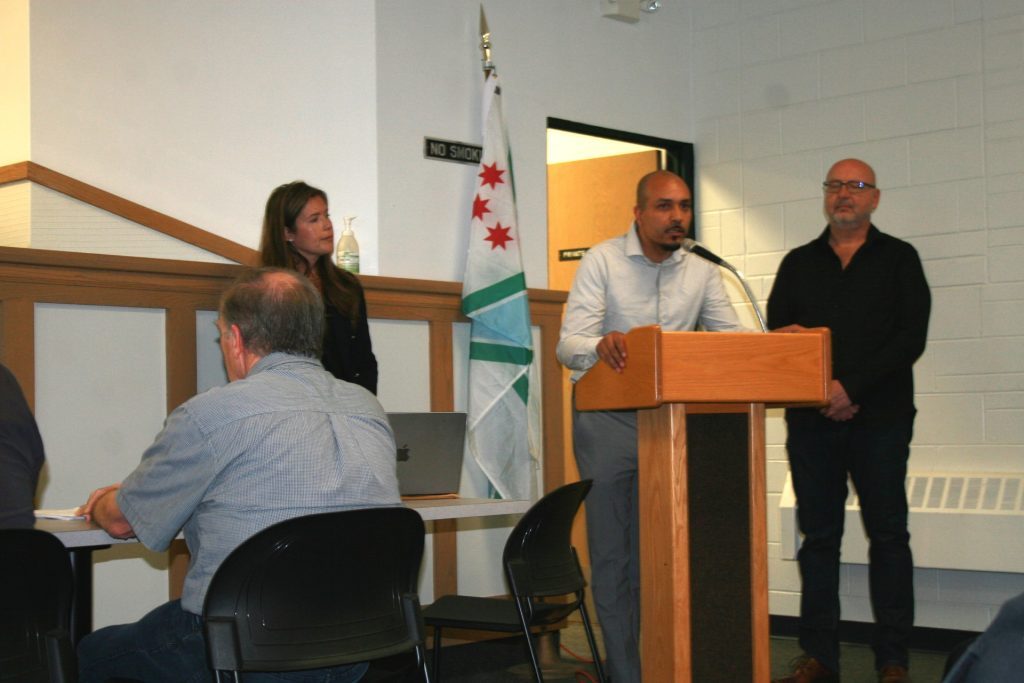
Capacity crowd speaks out against Evergreen Park dispensary
Spread the loveBy Joe Boyle Additional chairs had to be brought out to seat an overflow crowd of Evergreen Park residents who attended a meeting April 15 regarding a proposed cannabis dispensary for the village. And many who were in attendance voiced their opposition to having a dispensary in Evergreen Park. Most of the people cited…
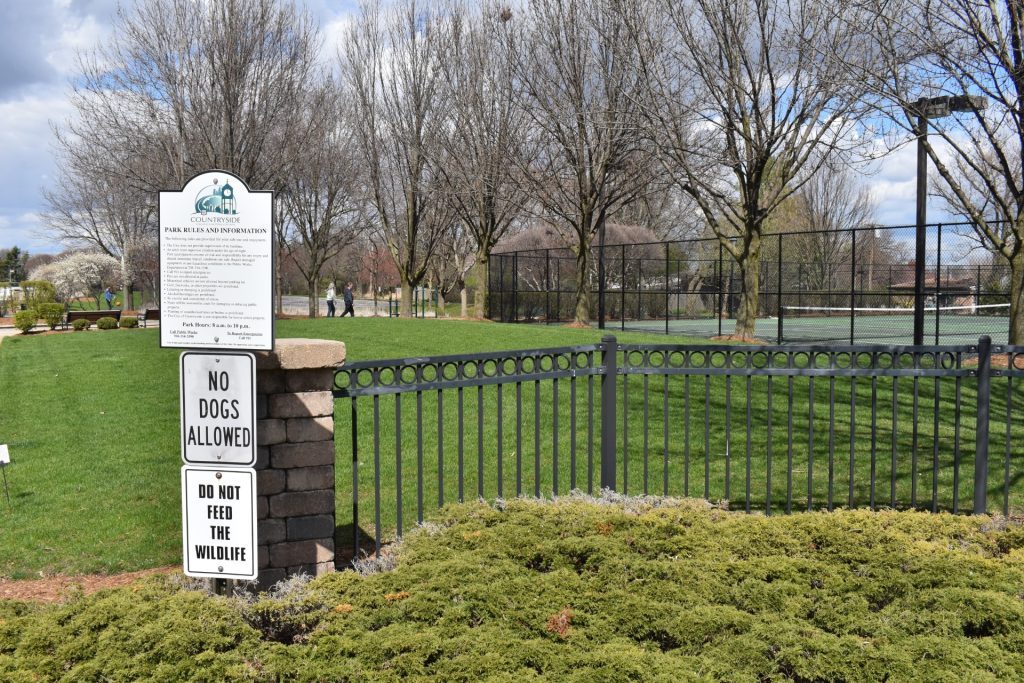
Countryside puts dog park on hold, will require leashes in two parks
Spread the loveBy Steve Metsch The city of Countryside has put on hold building a dog park, but canines and their owners are still in store for a treat. The city council has unanimously approved a plan to permit dogs in City Park and Countryside Park this year. Previously, they were not allowed in the…

Bridgeview approves auto repair shop
Spread the loveMoves up time for May 1 village board meeting By Steve Metsch Bridgeview is getting a new automotive repair shop. The village board at its April 17 matinee meeting approved a special use permit that will allow a repair shop at 9010 S. Beloit Ave. There was no discussion among trustees. The board…
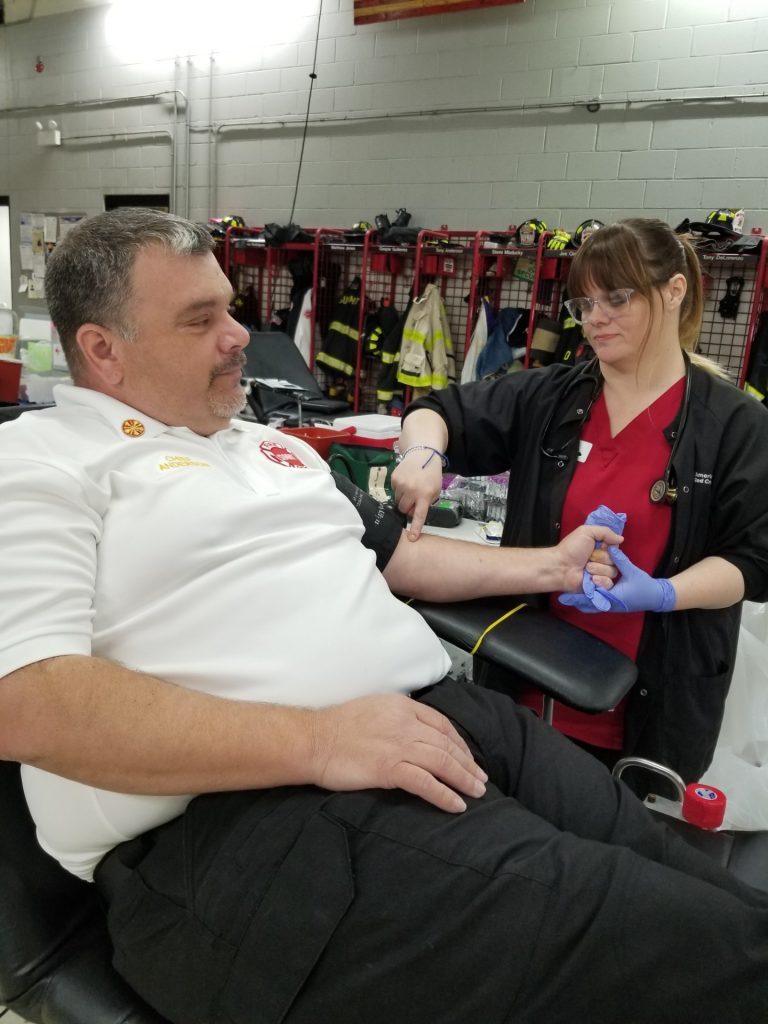
Summit Fire Department blood drive draws a crowd
Spread the loveBy Carol McGowan The Summit Fire Department, along with the Village of Summit, and the Argo Summit Lions Club held a blood drive this past Saturday, and it drew a crowd that even impressed the American Red Cross. It took place from 9 a.m. until 2 p.m. with non-stop donors walking through the…

Hodgkins toasts village businesses
Spread the loveBy Carol McGowan Hodgkins Mayor Ernest Millsap and the Board of Trustees celebrated the village’s businesses at its annual Business Appreciation Breakfast on April 10. Over 100 people gathered at the Hodgkins Administration Center for a hearty breakfast hosted by the village. Representatives from many businesses that are located in or that work…
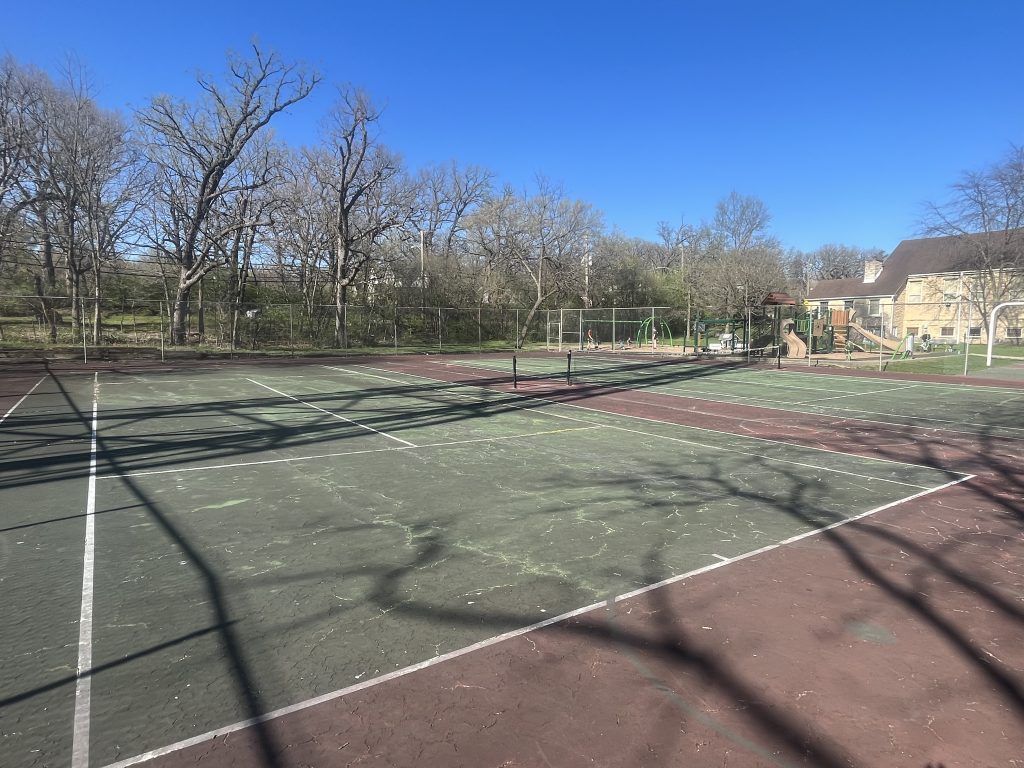
Pickleball courts coming to Palos Park
Spread the loveBy Jeff Vorva There will finally be outdoor pickleball in Palos Park. In a process that went longer than anticipated, the Palos Park Village Council was able give the green light to get a pickleball project started on the Village Green. The council voted April 8 to award the contract to U.S. Tennis…

First Secure Bank to host American Eagle gold coin sale
Spread the loveFrom staff reports First Secure Bank & Trust of Palos Hills announced its annual May sale of 1-ounce and ¼-ounce American Eagle Gold Coins, produced by the U.S. Mint, will take place from 10 a.m.to noon on Saturdays, May 4, May 11, May 18 and May 25. The sale will take place at…

Donate teddy bears to our local police
Spread the love. Peggy Zabicki Your correspondent in West Lawn 3633 W. 60th Place • (773) 504-9327 . Have you ever seen the 1955 movie The Night of the Hunter? The children in this movie show such bravery and acceptance in what life has thrown at them. They have to deal with unimaginable events and sadness. …
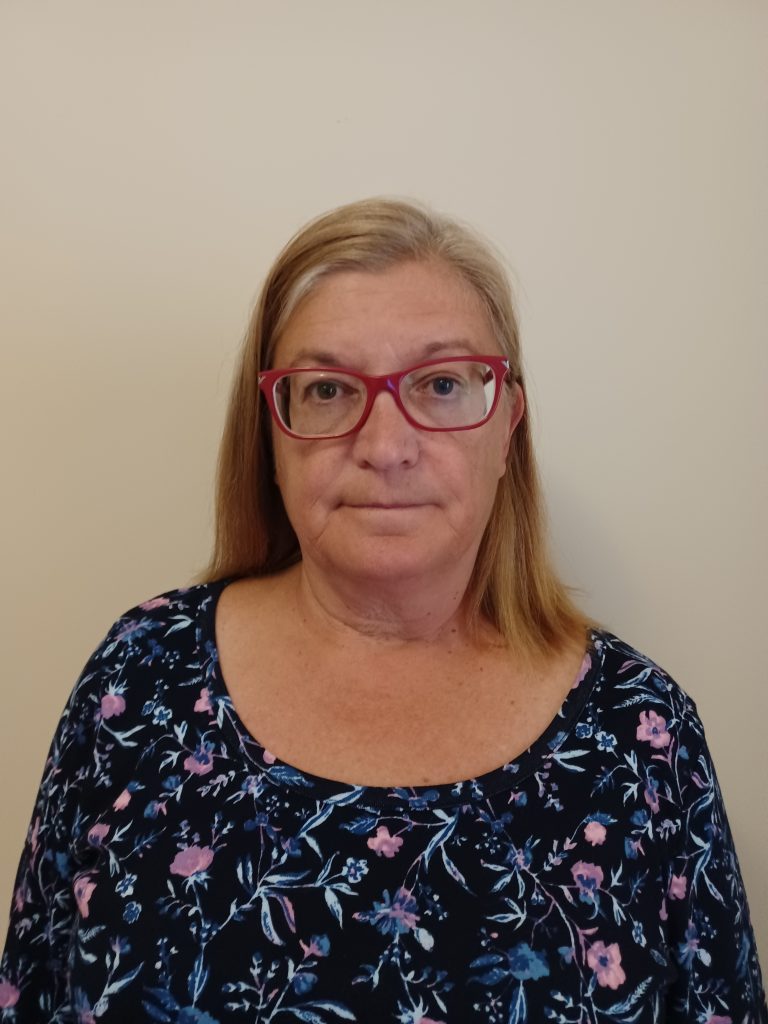
Boy Scouts collecting tattered flags for disposal
Spread the love. By Mary Stanek Your correspondent in Archer Heights and West Elsdon 3808 W. 57th Place • (773) 517-7796 . Goodbye April, hello May. Our American Flag, the symbol of our country, should always be treated with respect. But after bearing Chicago’s brutal winters and hot blazing summers along with being in the…
Neighbors

Capacity crowd speaks out against Evergreen Park dispensary
Spread the loveBy Joe Boyle Additional chairs had to be brought out to seat an overflow crowd of Evergreen Park residents who attended a meeting April 15 regarding a proposed cannabis dispensary for the village. And many who were in attendance voiced their opposition to having a dispensary in Evergreen Park. Most of the people cited…

Countryside puts dog park on hold, will require leashes in two parks
Spread the loveBy Steve Metsch The city of Countryside has put on hold building a dog park, but canines and their owners are still in store for a treat. The city council has unanimously approved a plan to permit dogs in City Park and Countryside Park this year. Previously, they were not allowed in the…

Bridgeview approves auto repair shop
Spread the loveMoves up time for May 1 village board meeting By Steve Metsch Bridgeview is getting a new automotive repair shop. The village board at its April 17 matinee meeting approved a special use permit that will allow a repair shop at 9010 S. Beloit Ave. There was no discussion among trustees. The board…

Summit Fire Department blood drive draws a crowd
Spread the loveBy Carol McGowan The Summit Fire Department, along with the Village of Summit, and the Argo Summit Lions Club held a blood drive this past Saturday, and it drew a crowd that even impressed the American Red Cross. It took place from 9 a.m. until 2 p.m. with non-stop donors walking through the…

Hodgkins toasts village businesses
Spread the loveBy Carol McGowan Hodgkins Mayor Ernest Millsap and the Board of Trustees celebrated the village’s businesses at its annual Business Appreciation Breakfast on April 10. Over 100 people gathered at the Hodgkins Administration Center for a hearty breakfast hosted by the village. Representatives from many businesses that are located in or that work…

Pickleball courts coming to Palos Park
Spread the loveBy Jeff Vorva There will finally be outdoor pickleball in Palos Park. In a process that went longer than anticipated, the Palos Park Village Council was able give the green light to get a pickleball project started on the Village Green. The council voted April 8 to award the contract to U.S. Tennis…

First Secure Bank to host American Eagle gold coin sale
Spread the loveFrom staff reports First Secure Bank & Trust of Palos Hills announced its annual May sale of 1-ounce and ¼-ounce American Eagle Gold Coins, produced by the U.S. Mint, will take place from 10 a.m.to noon on Saturdays, May 4, May 11, May 18 and May 25. The sale will take place at…

Donate teddy bears to our local police
Spread the love. Peggy Zabicki Your correspondent in West Lawn 3633 W. 60th Place • (773) 504-9327 . Have you ever seen the 1955 movie The Night of the Hunter? The children in this movie show such bravery and acceptance in what life has thrown at them. They have to deal with unimaginable events and sadness. …

Boy Scouts collecting tattered flags for disposal
Spread the love. By Mary Stanek Your correspondent in Archer Heights and West Elsdon 3808 W. 57th Place • (773) 517-7796 . Goodbye April, hello May. Our American Flag, the symbol of our country, should always be treated with respect. But after bearing Chicago’s brutal winters and hot blazing summers along with being in the…






